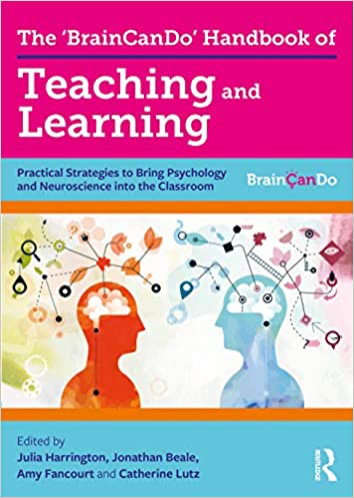Our colleagues at BrainCanDo have published an excellent new edited volume that provides teachers and school leaders with a concise summary of how some of the latest research in educational neuroscience and psychology can improve learning outcomes in secondary schools.
Here’s an excerpt from the Foreword, written by CEN Director, Michael Thomas, giving an overview of the book:
“What most sets this volume apart from others in the field is its focus on adolescence. It is noticeable how the educational neuroscience and psychological research taken to be of translational interest to education differs with the age of the child. For early years education, the interest is in basic sensori-motor skills, oral language development, behavioural regulation, and socio-emotional development – skills that contribute to school readiness. For primary school age, the focus shifts to core cognitive skills underlying academic abilities, such as numeracy, literacy and reasoning, the limits imposed by the development of skills of cognitive control, and more sophisticated socio-emotional skills involved in peer group formation and dynamics. Consider then, the topics considered in a volume aimed at secondary school: character development, gratitude, motivation, mindset, metacognition, regulation of sleep, extended musical training (Chapters 3, 5, 6, 7, 8, 9, 11). The focus has shifted again, beyond core skills to children’s understanding of their own learning and their motivations to learn. The individual must learn where he or she needs to put in effort to achieve their goals, and indeed to decide what those goals are – who they are as individuals.” (p.3)

